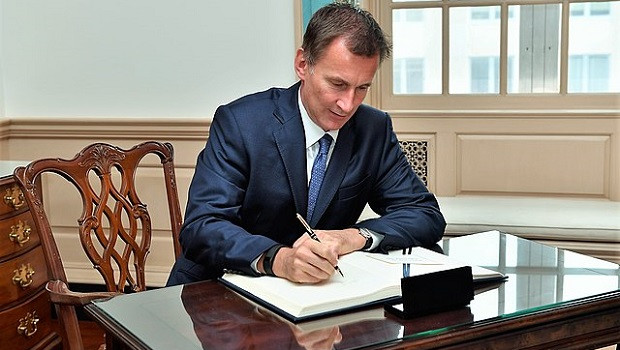UK facing recession as economy shrinks

The British economy shrank by 0.2% in the last quarter, official data showed on Friday, leaving the UK on the brink of recession.
According to the latest estimates from the Office for National Statistics, GDP fell by 0.2% in the three months to September end, compared to a rise of 0.2% in the second quarter.
Production output fell by 1.5% in July-September, the fifth consecutive quarter of contraction. Manufacturing output tumbled 2.3%.
In September, GDP fell by 0.6%. That compares to a fall of 0.1% in August, revised upwards from an earlier estimate for a 0.3% contraction. Consensus had been for a 0.4% drop.
The bank holiday for the state funeral of Queen Elizabeth II, when many shops and businesses closed, weighed heavily on September’s print. Services alone fell 0.8% in September.
The size of the UK economy is now 0.2% smaller than pre-pandemic, in February 2020.
Responding to the data, chancellor Jeremy Hunt - who next week will unveil the government’s latest budget - said: "I am under no illusion that there is a tough road ahead, one which will require extremely difficult decisions to restore confidence and economic stability."
Shadow chancellor Rachel Reeves said the data was "extremely worrying", adding: "Britain’s unique exposure to economic shocks has been down to a Conservative-led decade of weak growth, low productivity and underinvestment and widening inequality."
Victoria Scholar, head of investment at Interactive Investor, said: "With pressures from the cost-of-living crisis, the war in Ukraine and rising interest rates, the UK economy appears to be on track to fall into a recession by the fourth quarter, in what could be the longest period of economic contraction in at least a century."
Samuel Tombs, chief UK economist at Pantheon Macroeconomics, said: "The UK economy has slipped to the back of the G7 pack again, beset by more intense headwinds from fiscal and monetary policy, and substantial long-term supply side damage from Covid and Brexit. Among the six G7 economies that have already reported third-quarter estimates, GDP fell in the second quarter in Britain; France, Germany, Italy, Canada and the US have reported quarter-on-quarter increases."
Alpesh Paleja, lead economist at the CBI, said: "The data marks the start of a downturn for the UK economy, which could last for most of the coming year. Even accounting for an extra bank holiday in September, it’s clear that underlying activity has weakened.
"A weaker growth outlook and persistently high inflation will make for some difficult decisions on economic policy."